
Do iPads Belong in a Wall?
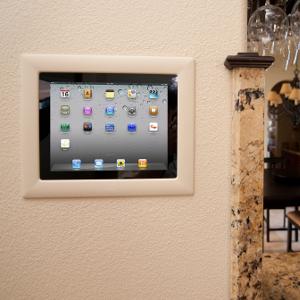 Call Custom Installation Services To Discuss How You Can Integrate Your i-Pad Into Your Home It may be irrational, but even the wealthiest homeowner may find it wasteful and just plain wrong to mount an iPad semi-permanently behind a wall.
Where does an iPad belong? On a countertop? Coffee table? The couch? Your lap?
Or should it be Velcroed to your dashboard, mounted on the wall like a monitor, moved from wall station to wall station via plastic tabs or snap-on discs, or mounted permanently behind a bezel?
Custom electronics pros are debating this very topic on dealer-oriented forums, and the opinions are mixed.
In our world, the iPad is so cheap compared with most traditional automation touchpanels that you may as well buy several of them and lock them into the walls like those old-fangled touchpanels we used to sell for $3,000 apiece.
But our world has changed!
Homeowners may no longer say, “I want a home control system, and I would like to be able to use it with an iPhone and iPad.”
Instead, they say, “I love my iPad. Design a home control system around it.”
By that time, they’re already used to toting their iPads around the house, from room to room as needed. Maybe they have a few scattered around the place. Mobility is one thing they really love about this lightweight, skinny screen.
So won’t they balk at the idea of forever locking an iPad into the wall? It may be irrational, but even the wealthiest homeowner may find the idea wasteful and just plain wrong.
Bethesda Systems in Maryland has a nice blog post beseeching clients to do the unthinkable: tether their iPads.
iPad was designed to be held in your lap. And it’s proven itself to be a truly revolutionary mobile device. And now we’d like you to consider…letting go. Literally.
He shows some nice examples of iPads embedded in clever cases such as an old Mac classic, and in convenient places like a kitchen cabinet.
At the end of the blog, Bethesda shows an iPad with shattered glass, warning:
Don’t let this happen to you! With your in-wall mounted iPad it’s always safe, it’s always charged, and it’s always right where you left it.
Clearly, the right solution for homeowners who can afford it is to have multiple iPads mounted in convenient places around the house.
What do you think?
by Julie Jacobson
http://www.electronichouse.com/article/do_ipads_belong_in_a_wall/apple
Custom Installation Services, LLC – ”We may be a few dollars more than the competition, but we are a million times better”.
Posted in Audio Systems, Automation, i-Pad, Multi Room A/V, Music and Movies, News, technology
|
Tagged 3d theater in charlotte, audio advice, Best Buy, central vac dealers in charlotte nc, charlotte audio advice, charlotte custom home builders, charlotte hd installers, Charlotte Home Theater, charlotte nc architects, Charlotte onkyo dealers, custom home builders in lake norman, geek squad in charlotte nc, HD installers in Charlotte nc, home automation companies in charlotte, Home theater installers Lake Norman, i-pad integration, i-pad integration charlotte, innovative systems, speakercraft dealers in charlotte nc, Universal Remote programmers in charlotte nc, zobo
|
Why Energy Efficiency Starts at Home
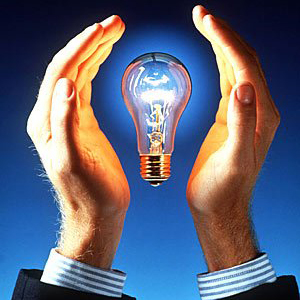 C.I.S. is the Carolina's #1 Authorized Retailer/Installer of Lutron & HAI Energy Saving Devices It’s time we took energy efficiency personally.
Consider the following stats:
-Over 70 percent of U.S. electricity is generated by burning coal, petroleum, or natural gas, all fossil fuels that emit carbon into the atmosphere when burned. Coal alone provides 44 percent of U.S. electricity and the majority of greenhouse gases. Source: DOE
-Homes and commercial buildings use 72 percent of U.S. electricity, and homes use 51 percent of that. Source: EPA
-There are approximately 126 million homes in the United States, which equates to an annual emission from homes alone at approximately 1.3 billion metric tons of carbon. Source: US Census Bureau 2006
-According to the National Home Energy Efficiency Program (NHEEP), the U.S. housing stock wastes more energy than any other sector in the world.
So why are environmentalists, policy makers and others focused on reducing the energy output of industry, transportation and the commercial sector? It’s true that we can make huge gains by making our power and manufacturing plants, cars and commercial buildings much more efficient. But many of us forget to include our homes in the energy efficiency equation. And this, I am convinced, is the primary reason why we are not seeing the efficiency gains we’d like in these other sectors.
A recent New York Times article, “Doing More While Using Less Power,” throws around a bunch of conflicting energy efficiency projections. And other articles on the subject typically state projections in the billions and trillions—collective numbers that few can comprehend, not to mention the fact that wildly varied projections stretch into 2020 or 2030 or 2050—times few us can comprehend, especially when most of us are trying to survive in an economically scary 2010.
The Times article also laments the fact that some businesses, while they could save millions on energy efficiency initiatives, remain hesitant to do so. “Perhaps the biggest barrier to maximizing energy efficiency is the natural reluctance of people to try something new,” the article opines.
That may well be true. In both business and politics, anything new poses risk, and risk is not typically welcome in economically troubled times.
But maybe, just maybe, the hesitation people have with all this energy efficiency stuff is that they are not personally invested in it. And of course they are—if we continue on our wasteful ways we will all have stakes in inflated energy costs and a deteriorating climate. But people don’t feel they are invested in it—and that is the problem.
The sad part is, people have reason not to be personally invested in energy efficiency: We throw incomprehensible numbers at them—billions and trillions—as well as incomprehensible terms like BTUs and kilowatt hours—and dates that extend far into the future, which more likely inhibits a sense of urgency in the matter. We say we should set policy in industry and in the commercial sector and in transportation—and soon the entire matter is in someone else’s hands—not our own. The problem becomes so much larger than each individual. Instead, we need to personalize energy efficiency and give everyone a stake in it.
The numbers above prove we should start our energy efficiency efforts in the home. So why aren’t we doing it?
The Real Prius Effect
Say what you will about the Toyota Prius—I say you can do the planet better by turning lights off in your home—but the hybrid electric car does one thing amazingly well: It puts energy efficiency in the face of its driver, with a large screen-based readout that makes saving gasoline like a video game. The Prius may not be the best choice for saving the planet, but it manages to personalize energy efficiency and gives its users a real stake in it.
And here’s another story, which for many actual people may be far more convincing than a bunch of incomprehensible numbers. I was at a Little League game this summer, the day an energy-efficiency appliance rebate program ran in my state, and the very blue-collar, probably not so energy-efficient granddad in front of me said, “Yeah, we bought a new washing machine and a new refrigerator—and you know what? It’s going to use half as much electricity as the one we had!” He was as excited about the energy efficiency as he was about his rebate—if not more so. And the funny thing was, the scene repeated itself the very next week with another person who suddenly started thinking about energy efficiency. That is personalizing it. And that is why our energy efficiency efforts should start in the home—with real people and not vague corporate or government entities. Involve real people in energy efficiency, and we will start to get real results.
by Steven Castle
http://www.electronichouse.com/article/why_energy_efficiency_starts_at_home/
Custom Installation Services, LLC – ”We may be a few dollars more than the competition, but we are a million times better”.
Posted in Automation, HAI, lighting control, Lutron Radio Ra II, News, Structured Wiring, technology
|
Tagged audio and video in nc, av contractor charlotte, charlotte audio advice, charlotte custom home builders, charlotte hd installers, Charlotte Home Theater, charlotte nc architects, Commercial lighting control, custom home builders in lake norman, custom home entertainment cabinetry charlotte nc, digital home automations charlotte, electronics disposal laws charlotte, flat screen in charlotte n.c., foot of bed tv lifts charlotte, geek squad in charlotte nc, hai dealers charlotte nc, hang a flat screen tv in charlotte nc, HD installers in Charlotte nc, hdmi cable installers charlotte nc, home audio north carolina, home automation companies in charlotte, home tv installation charlotte, Lighting control dealers in lake norman, lutron radio ra dealers charlotte, Universal Remote programmers in charlotte nc
|
10 Popular Audio Demos
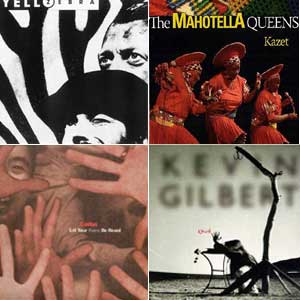 Custom Installation Services is Charlotte, NC's #1 Authorized Polk Dealer Polk Audio shares some of its favorite audio demo tracks.
During a recent visit to Polk Audio, the Baltimore, Md.-based manufacturer gave us a sneak peek at some of its upcoming products.
The speakers were great, and some of the audio tracks were fantastic. As you know, playing the correct tracks during audio demos is essential. It can sometimes make or break a client’s decision.
We recently shared the favorite audio demos and video demos of some CE pros. Now, Polk has shared with us some of its favorite demo tracks and why each works so well.
 Yello | Fat Cry Yello | Fat Cry
The opening to this cut is very recessed and almost muffled with a good bass line then not quite 20 seconds in is like someone pulls a veil away and not only does the music become clear & detailed it also expands in size with bass that just says bet you didn’t know I could go this low.
The voices that come in after this are good and catchy but you just want to go back to the beginning to see if you really heard that.
I find this cut to be a very good test of a loudspeakers ability to show off what everyone is always looking for big, powerful, deep bass along with being accurate. After the first time one has heard this cut, every time thereafter you are waiting, timing the moment that the veil is pulled away and the power of that bass note that arrives with, oh yeah.
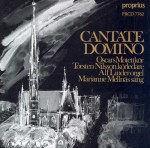 Cantate Domino | Christmas Song Cantate Domino | Christmas Song
This cut has so much going on and, like Fat Cry, surprises you with its power and emotion as almost every person I have demoed this for over the last 23 years have experienced everything from a chills to tears. In the beginning it appears that the symphony is being played in a small hall or maybe a church along with a soloist as it builds you begin to realize this symphony is in a very large concert hall as the music begins to wrap around you revealing the immense size and height of the hall. This happens with increased volume and now a choir of voices along with a pipe organ.
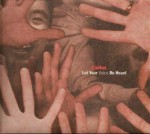 Cantus | She Moved Through the Fair Cantus | She Moved Through the Fair
Excellent recording of acapella. Listen for the air around the voices, staging, and sense of life-like dynamics even (especially) in soft passages.
 Mahotella Queens | Nomshloshazana Mahotella Queens | Nomshloshazana
This joyful, upbeat track features layered instruments that are added in the first minute, demonstrating clarity and the ability to separate instruments effectively. Bass is strong and punchy when played on a high quality speaker.
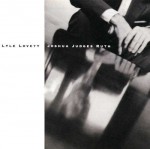 Lyle Lovett | Church Lyle Lovett | Church
Lyle’s voice is front and center with the expanse of a choir across a broad soundstage behind him. Distinct hand claps and voices as they chime in now and then. Piano intro is early on, then the bass comes in with a full bottom end.
 Johnny Clegg | Akanaki Nokunaka Johnny Clegg | Akanaki Nokunaka
This is just a great fun, traveling down the road cut with a great beat and Johnny’s amazing voice.
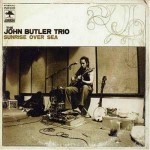 John Butler Trio | Bound to Ramble John Butler Trio | Bound to Ramble
There is tremendous separation of instruments. There is enough air that each instrument stars. You hear the attack on the Banjo. The rumbling resonance of the body of the upright and the overtones of the strings.
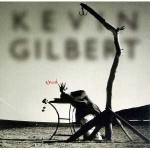 Kevin Gilbert | Goodness Gracious Kevin Gilbert | Goodness Gracious
This track features an up front vocal that is good for testing lateral balance of system. The solid, driving bass line should be even across frequencies. The shaker in the introduction should be placed properly in space and have a natural sound to it.
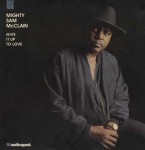 Mighty Sam McClain | Too Proud Mighty Sam McClain | Too Proud
Impact and dynamic range of blues-man Might Sam McClain. Listen to the detail of instruments in the background such as organ and percussion. Better speakers resolve these impressively.
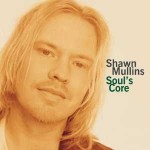 Shawn Mullins | Ballad of Billie Jo McKay Shawn Mullins | Ballad of Billie Jo McKay
There’s something enjoyable about listening to the basics of a vocalist and his guitar painting a lyrical work of art. This track allow you to listen to the natural sound of an acoustic guitar and feel the emotion of vocalist. Listening to music should invoke passion, or at the least, some type of personal reaction.
by Steve Crowe
http://www.electronichouse.com/article/10_popular_audio_demos/
Custom Installation Services, LLC – ”We may be a few dollars more than the competition, but we are a million times better”.
Posted in Audio Demos, Audio Systems, Music and Movies
|
Tagged 3d theater in charlotte, audio advice, charlotte audio advice, charlotte custom home builders, charlotte hd installers, charlotte hi-fi, charlotte home audio, charlotte home audio experts, Charlotte Home Theater, charlotte nc architects, Charlotte onkyo dealers, cis, cis nc, flat screen installer charlotte nc, HD installers in Charlotte nc, home audio consultation and design, Home theater installers Lake Norman, home theater wiring, innovative systems, martin logan dealers charlotte lake norman mooresville, multiroom audio, speakercraft dealers in charlotte nc, tv installation, tweeter charlotte, Universal Remote programmers in charlotte nc, whole house audio, zobo
|
|
|
|
















